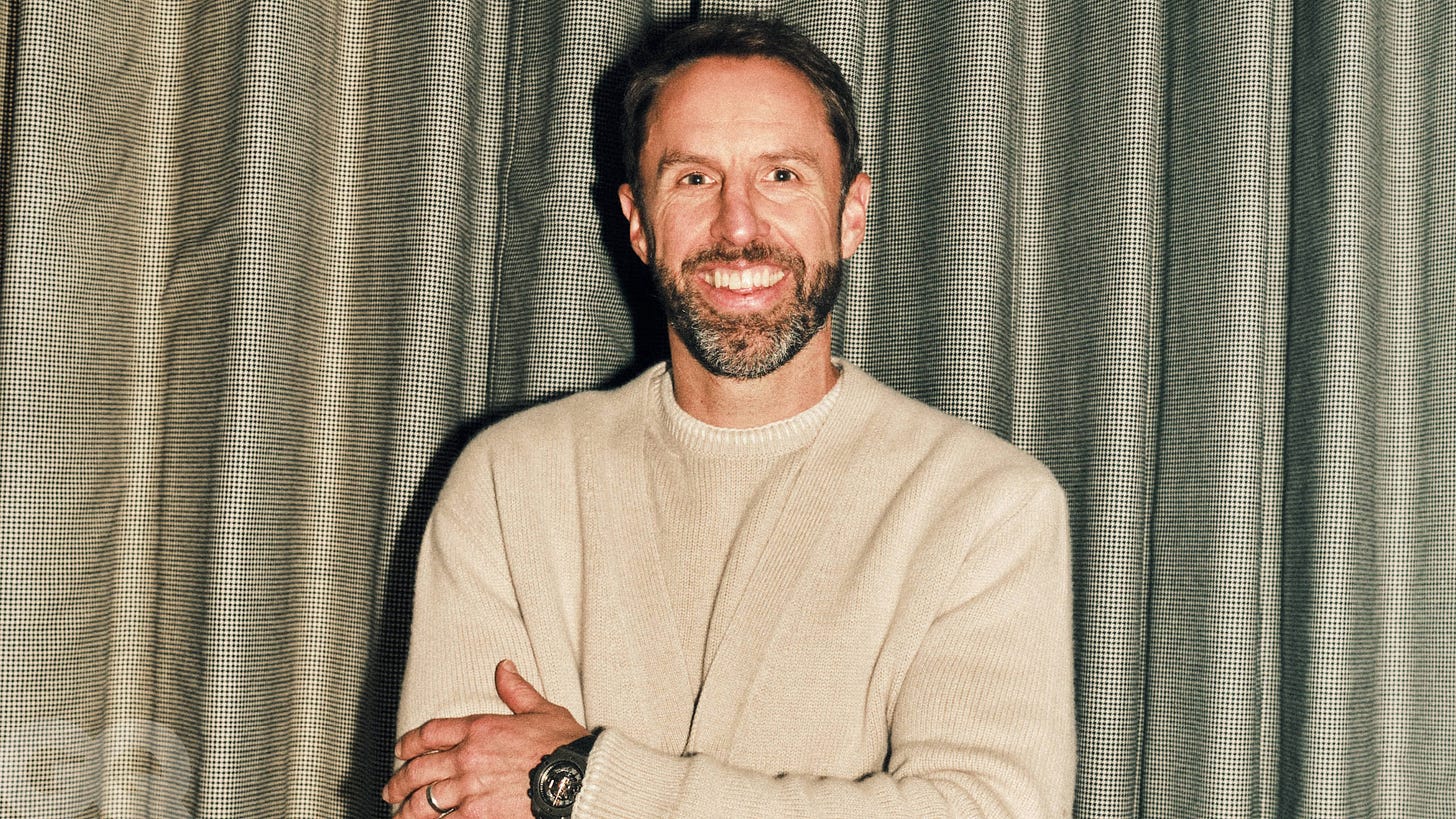Borkowski Media Trends: Just Stop Oil, England & Justin Timberlake
Justin Timberlake ARRESTED, high expectations create hostile conditions for Southgate's England, and a busy week for Just Stop Oil...
Cry me a World Tour
Justin Timberlake’s arrest in New York for under suspicion of DWI was the kind of old school celebrity PR crisis perfectly befitting his synonymity with the early 00s.
Timberlake has endured some difficult months since Britney Spears portrayed him as a multifaceted bad guy in her memoir. Britney has been so badly scorched by our society’s pop cultural inferno that she’s been almost canonized as a tragic hero akin to a millennial Joan of Arc, so anybody who is seen to have added to her torment was always going to feel the full force of the internet’s ire.
But despite this, and unlike in the 00s when celebrities were uninsulated from the full radioactive force of tabloid news, it’s unlikely that this incident, as Timberlake put it himself, “is going to ruin the tour” (the world tour that is) – at least not for PR reasons.
That’s partly thanks to the exchange whence the above quote emerged, in which Timberlake’s humiliation at being caught out was reportedly compounded as he was forced to explain to a young cop (who didn’t know who he was) that his arrest put his “world tour” in jeopardy.
This exchange became a meme that has actually diluted the negative publicity suffered by Timberlake as a result of his arrest by drowning the negativity in humour – even if it’s kept him in the media spotlight for longer than he’d have liked.
Meltwater data lays bare this crisis and its limitations and is a useful lesson on the conditions of a modern PR crisis.
In the past week 81% of non-neutral mentions of Timberlake in the media have been negative – that’s over 100,000 stories and significant social media posts. But it’s not all bad; crises these days don’t last long - mentions of Timberlake spiked at 132,000 on Wednesday but as of Friday have dropped 93% to below 10,000.
And the comedy is undoubtedly distracting from the negativity; nine of the top 10 most shared links about Timberlake in the last week have been memes – with only the first significant share of his mugshot treating his arrest as anything more than a joke. If that doesn’t illustrate the trivial nature of the crisis, there’s also the small matter that the ‘ROFL’ emoji has been mentioned in conjunction with Timberlake’s name over 2,000 more times than ‘DWI’ since the arrest.
While instructive, it’s important to note that it would have been very hard if not impossible for Timberlake to engineer a situation where a meme distracts the general public from his reputation crisis. Possibly the only major public figures who have done that successfully in recent times have been Donald Trump and Boris Johnson – and neither of them were able to swim against the serious undercurrent of their reputational issues forever. But it does show any errant celebrity worried about career-ending scandal that the modern news cycle is short-lasting and easily distracted by frivolity... there’s hope for us all.
England top EUROs group, but at what cost?
Why do we do this to ourselves? Perhaps another cruel consequence of COVID is that we are too caught up in the excitement of watching international football in a restriction-free social setting, and we forget years of enduring painfully mediocre football.
On paper this England team is good. So good that most bookies were tipping England to go all the way. Can you blame the nation for a bit of indulgence?
The most fascinating question is, why the doom and gloom when England has effectively qualified for the knockout stages on top of their group?
Beyond the snoozefest and lack of quality on the pitch, it comes down to our curious relationship with Gareth Southgate. More often than not, we've celebrated Southgate's canny ability to manage his PR. However, this might just be one tournament too far.
Southgate has backed himself into a corner: win the EUROs, and he'll go down a legend; anything that doesn't meet this heady expectation will leave his legacy in a curious spot and eternally question whether he could've achieved more.
And this unenviable pressure Southgate is under was avoidable, especially considering his track record of carefully managing his profile. In the past, Southgate has habitually played down England's chances to go all the way. He's always protected his players, bestowing a paternal duty of care onto his squad.
This time, it feels Southgate may have overlooked the importance of managing expectations. He certainly had more scope to proactively dampen our lofty expectations in the media. In England's curious case, you simply can't do this enough. With the luxury of hindsight, his decision to talk to GQ and let them frame him as a bit of a fashion icon resembles a figure that might have one foot out of the door of international football. Knowing the intense pressure he'd be in for come June, Southgate had the opportunity to dampen our expectations at every possible juncture. It's a young team, and we've learnt that the crushing sense of hope ultimately makes playing for England such a daunting task.
Maybe we're being too harsh on Gareth, but England fans are relentless. And we've seen the nasty side when things don't go our way, most notably, the racial abuse players suffered at the last EUROs. With the travelling England fans booing the players after a disappointing 1-1 against Denmark, Gareth is in for a wild ride. But in this bizarre reality, despite all these questions he's fielding, (results wise) it's so far so good for Southgate. Unfortunately Southgate and his players are balancing on a knife's edge, and the fallout is so daunting that it will almost certainly disrupt this young squad.
Megalithic action: Stonehenge and Swift get sprayed
Just Stop Oil has been busy, targeting two sites - spraying orange powder paint at Stonehenge on Wednesday and breaking into Stanstead Airport. Same tactic, same stunt, but two different reactions.
The Stonehenge stunt was heavily criticised, notably by Sunak and Starmer commenting with the soon-to-be PM saying, “outrageous. Just Stop Oil are pathetic”. Contrarily, despite failing to spray Swift’s jet (she had not yet landed in the airfield at the time of the protest), the second stunt was met with a more sympathetic media reception. Media coverage focused on the messaging of JSO - calling on the next government to sign a legally binding treaty to phase out fossil fuels by 2030.
If the aim of the Just Stop Campaign was simply to generate publicity, then the Stonehenge stunt was arguably more successful. Public outrage at the defacing of a site of national pride led to a trending hashtag on Twitter and a significant increase in coverage. However PR is more nuanced than this, and the coverage of the Stonehenge stunt was largely focused on lichen endangered by the paint, with minimal mention of JSO’s core messaging beyond that encapsulated in its name, failing to turn attention into action.
So why the different public reaction? It could be the apparent cognitive dissonance between the core values of JSO and the damage of the stones. For an organisation focused on ending fossil fuel and protecting the environment, risking harming rare lichen found on the monument and opting to target a monument known to have been used as a place of worship and ritual in the admiration of nature seems to miss the mark. The stunt comes across as a crass attempt to gain attention without considering whether the organisation’s values are reflected.
While the private jet play missed the mark target-wise (the singer’s jet was not in the airfield), it gathered much more support, thanks to the clear link between the target of the JSO vandalism and the actual messaging the organisation seeks to promote. Reducing the use of fossil fuels and private jets has a clear connection. The singer’s private jet has also garnered increasing criticism in recent months. As such, even with Swift’s mega-stardom and the overwhelming popularity of the Eras tour, the anti-jet stunt was met with broad public sympathy.
JSO has provided a lesson in why one must not get distracted by the flashiness of a stunt and should instead ensure that actions and values remain linked.








